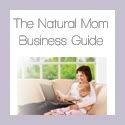Have you heard about a recent Gallup poll that concludes that stay at home moms experience more depression? As soon as I got wind of it, my immediate thought was, “Why, of course they do.”
(Note: This study is not the first of its kind. There have been several that came to a similar conclusion.)
That may be a surprising thought from a woman who has been a stay at home mom for 14 years. It may also be surprising that I’ve never actually experienced clinical depression. So why would I automatically agree with the study’s findings?
Because I believe it illustrates important principles about motherhood (and women in general) that perhaps our culture doesn’t readily acknowledge.
The study analyzed the results of 60,000 American women interviewed this year. It found that non-employed moms fared badly in terms of emotional health when compared to their peers. They experience more worry, more sadness, more stress, anger and depression. Low income stay at home moms fared the worst.

I don’t see the findings are designed to add fuel to the “Mommy Wars”. (If such a thing even exists. I think it’s something the media invented to sell magazines.) I see this survey as reflecting some important truths. Namely, the fact that women who happen to be mothers need a) intellectual stimulation b) challenging and rewarding work c) adult companionship d) spirituality in order to be happy. All people need this. Once our basic physical needs for food, clothing and shelter are met, we need something more in order to be happy.
Megan of the Happiest Mom illustrated this beautifully in a blog post about a Mother’s Hierarchy of Needs, in which she referenced (of course) Abraham Maslow’s hierarchy of needs. She puts it better than I ever could, so please take a moment to read her post.
Motherhood is glorified and elevated to Madonna status in our culture. It has a shiny halo around it. However, it’s mostly just lip service. Most people think that it’s best for women to stay at home with their children in the first years of their lives, but when push comes to shove, what do we as a culture DO to make this ideal easier to accomplish?
A whole lot of nothing.
When it comes right down to it, it’s very difficult for mothers to get the support they need to be well rounded, happy individuals in this country.
This isn’t true in much of Europe, where government policies actually put money where their mouths are. Better access to health care, better outcomes for birthing women and their babies, long paid maternity (and paternity!) leaves, in-home nursing care for postpartum women, social policies that support moms who work outside the home (like the shorter workweek of the French woman, government subsidized high quality child care, etc) and there are other examples. I don’t wish to get into a debate about politics because I don’t believe these problems will be solved in the current system.
I do wish to point out that the idea of the stay at home mom in a nuclear family situation is a very new idea. And it’s bad for a woman’s emotional health. Period.
In the not so distant past, every woman was both a stay at home and working mother. Women worked alongside their husbands to earn the family’s income. (The arrangement of the nuclear family is bad for both women and men, I feel.) And they traditionally lived alongside extended family, where they had the social support and companionship of other people. I’m not one of those people who insists everything was better in the good old days, because that’s simply not true. But I believe that many modern practices that have become common in our culture are antithetical to a mom’s well being.
As I stated earlier, I’ve never suffered from clinical depression. But I keenly remember the boredom, restlessness and even anxiety that accompanied my life with young babies and toddlers. I loved being a mom and didn’t want to return to work full time, but I was quite miserable sometimes. I think women are afraid to articulate or even acknowledge these feelings because they fear people will accuse them of not loving their children (I’ve seen women criticize other women on blog comments, saying this very thing.).
That’s ridiculous. I adore my husband, but I wouldn’t want to spend all day at home alone with him wiping his nose and butt, either. (If I did, I would probably experience caregiver stress, and nobody would criticize me for it or accuse me of not loving him.)
The social isolation I felt in my first couple of years as a mom was very difficult to endure. I was the first among my friends to begin having kids, and they all sort of just forgot about me. I didn’t want it this way, and I remember trying hard to reach out. But it was a little overwhelming trying to keep friends while taking care of a very high needs baby and sudden loss of income.
When my babies were little, I often invented reasons to leave the house just so I could interact with another person. One who wouldn’t poop on me, rub snot on my shirt, or demand something of me. I went to La Leche League meetings. In 3 counties. Just for the social interaction. Then I became a La Leche League leader so I could do something that felt challenging and rewarding. Something that other adults, my peers, would recognize as such.
I started little businesses (and finally, blogs and websites) so I could do something to keep from losing my mind. (By mind I mean intellect. I wasn’t going crazy, I was just going stupid.) I remember counting down the minutes until my husband got home from work – which probably put an unhealthy demand on him because at the end of a long work day he was spent, and needed to retreat to his man cave. Yet I needed adult interaction, which produced a conflict. I remember having anxiety about when someone would wake up for a nap, desperate for a little recharge time. I visited my mother a lot, who thankfully lived close by during those early years.
Taking care of children and house full time involves a lot of onerous, repetitive tasks that nobody really enjoys. We do these tasks because they’re necessary, or maybe because noone else will do them. But I doubt any mentally healthy woman has ever looked at a mop and found a sense of purpose. We just try to put that spin on things in order to feel better about spending much of our lives on those duties. (Of course, moms who work outside the home accomplish these tasks too, but they’re better at prioritizing and outsourcing them.)
According to the study, low income women suffer the most.
That comes as no surprise. Being poor sucks. It increases stress levels and makes parenting far less enjoyable. Having enough money smooths out the rough edges of life. Even more interesting is this finding:
“Low-income stay-at-home moms are also more likely to say they have experienced daily worry and stress than low-income employed moms.”
No surprise here either – it’s an issue of power and control. If you’re in a bad circumstance, you usually feel better about your prospects and your life if you at least have some power over the situation. An employed low income mom has more control than a non-employed one. She’s probably also less likely to stay in an adulterous, abusive or alcoholic marriage if she has an income. Money gives you choices.
Let’s talk about the need for challenging, rewarding work for a moment. This is something all human beings need. We were created with the desire to see good things come from the work of our hands. This is why unemployed people are more depressed and more likely to commit suicide.
While being a mother is certainly challenging – I doubt any sane person would argue that – taking care of young kids can be mentally numbing. And the rewards are difficult to measure. Moms get paid in wet kisses and drool-y grins, and there is a lot of joy in parenthood, but it’s not enough. At least, not for many women I’ve known throughout the journey. I can’t think of a single mom who doesn’t have a “something else”… maybe it’s volunteer work, maybe it’s a part or full time job. Maybe it’s writing or art or … whatever.
The importance of the money you get paid to do work is not to be underestimated either. It’s a fact that money is how we reward productivity in our society. We say that moms are worth over $100,000 – but, ahem… I have yet to see a paycheck for my years of service.  When my husband goes to work each day, he gets the self esteem boost of seeing his work completed (not undone in 5 minutes). He is praised by his customers. They buy him lunch, give him extra thanks in the form of tips, and at the end he gets payment. Nobody criticizes men for needing this. And nobody accuses a man of being a bad Father if he needs the self esteem boost of paid work.
When my husband goes to work each day, he gets the self esteem boost of seeing his work completed (not undone in 5 minutes). He is praised by his customers. They buy him lunch, give him extra thanks in the form of tips, and at the end he gets payment. Nobody criticizes men for needing this. And nobody accuses a man of being a bad Father if he needs the self esteem boost of paid work.
If you asked a man to dig a ditch, then filled it up overnight, and asked him to dig it again the next day, he would likely go insane. This is a little bit like the life of a mom of young kids. Let’s face it. Children (and husbands) aren’t particularly good at acknowledging the work we do. The rewards aren’t as clear, and sometimes they don’t really come until decades later. “You’ll appreciate me when you have kids of your own!” Our kids don’t truly appreciate the sacrifices we’ve made for them until they’re parents.
Because of my choice to be a stay at home mom, I also put myself (and frankly, my children) at risk financially. I touched on this on another blog when I wrote Work at Home Moms Aren’t Making the Feminine Mistake.
I know that by publishing this post I’m putting myself out there for criticism. That’s ok. I put my big girl panties on this morning. I’m just being honest. There are probably people who will skim this post not taking the time to think, or assuming inaccurate things about me or my history, or assume that I’m being defensive about my choices. When I’m not. I wouldn’t go back and make the decision to work full time outside the home. That’s not what I’m saying.
I’m saying that depression among stay at home moms is a real problem, and we need to figure out the reasons why so we can do something about it.
So that’s the bad news. The good news is that by opening this dialogue, we can at least begin to address it. Maybe women will be a little more likely to share their honest feelings with each other (and their husbands) if they know that 60,000 women in a study agree with them.
To sum up:
- I’ve been a SAHM for 14 years. Yet I agree with the findings of this study.
- I think we need to be more aware of these issues and how we can help stay at home mothers avoid depression.
- Moms who work outside the home are probably happier because they enjoy a sense of identity outside their relationships with their children, challenging, rewarding work and more respect from their peers.
- Moms don’t need to apologize for not giving up everything they enjoy – including paid work – to raise their children. It means their mental health.
What do you think of studies that point to employed moms being happier than stay at home moms? Have you dealt with depression as a mom? How do you find a balance in your life between being a mom and being a person with needs of her own?





















